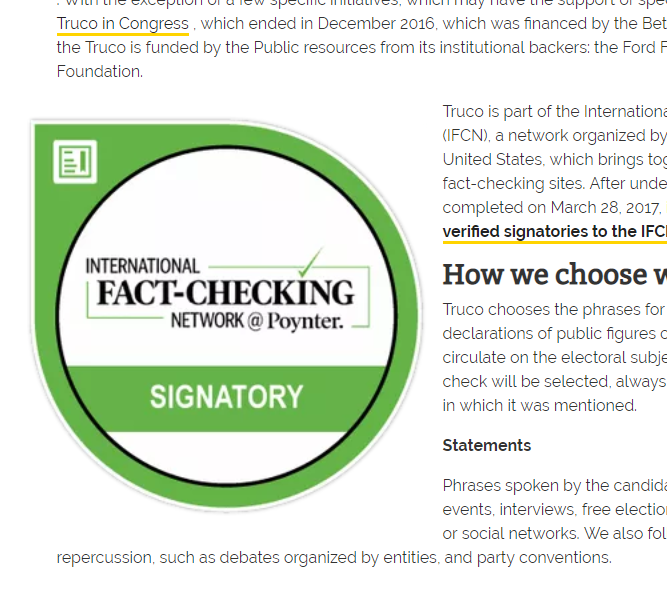A fact-checking organization either is or is not a verified signatory of the International Fact-Checking Network’s code of principles.
Right?
In truth, it’s hard to tell. The system has gray areas.
First, “partial compliance” apparently counts the same as “full compliance” with various IFCN criteria. Fact-checking organizations routinely pass inspection despite failing to fully comply with the IFCN code of principles.
Second, the IFCN’s system reviews its signatories annually, announcing a date on which the organization’s verified status expires. PolitiFact’s verification is due to expire today, for example. What time today we do not know, for PolitiFact remains listed as a verified signatory.
Also, expired signatories routinely keep their IFCN badges posted on their websites, advertising their verified status even while the IFCN website recognizes the verification as expired.
For example, Brazil’s Agência Pública – Truco had its verification expire on April 9, 2019. But a screen capture (with the page Google-translated into English) shows the IFCN badge proudly displayed.
This is not an isolated case. One of the flagship fact-checking organizations, Full Fact, did much the same thing in 2018. Another Brazil-based fact checker, Aos Fatos, had its verification expire in March 2019 but still features the IFCN badge of approval on its website.
We call on the IFCN to clarify its guidelines for identifying verified signatories. And we call on all would-be signatories to follow those guidelines to the letter.
You are setting an example.




